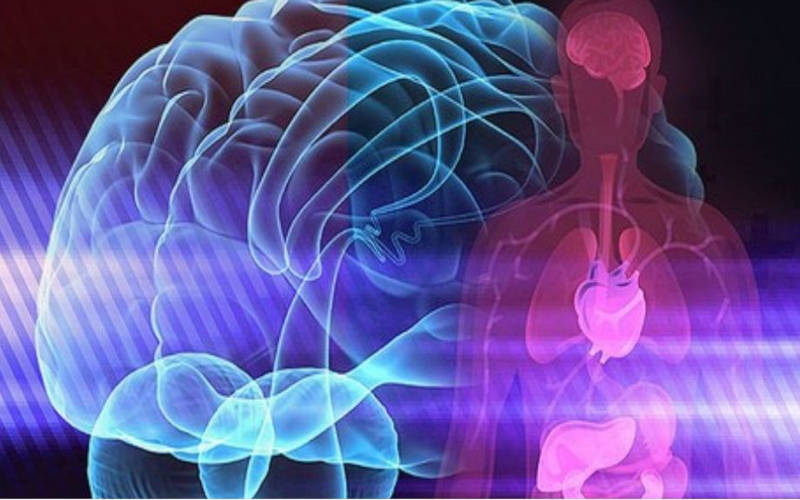Chronic or acute depression is hardware and software based. You can’t “treat” one and expect to correct the other. Both aspects need to be “treated”, meaning, they need to be fixed by the method that is of the same nature as it. Hardware is biochemistry. It is the physiological aspect of the brain and the central nervous system. It encompasses nutrients, toxicity, hormones, the endocrine system, and neurotransmitters. This is the physical part of mental health and is the realm of the physical brain and central nervous system. Software is the non-physical aspect of mental health. It includes experiences, trauma, conditioning, self-image, self-talk, belief structures, “motivation”, spirituality, and all that encompasses one’s paradigm and worldview. These are the things about a person’s personality and are part of how the individual views him or herself and how one interacts with the world around them.
It is about understanding the difference between the physical brain and the non-physical mind.
The best analogy is a computer. If there is a problem with the computer, first the diagnosis must be made to determine if it is a hardware or software problem. If it is a hardware problem, meaning, something to do with a physical component, then the physical component needs to be fixed. If it is a software issue, or, programming, then the non-physical program must be fixed or uninstalled and re-installed.
I can’t tell you how many people get lost with this. They have a software problem but their doctor or health care practitioner gives them pills to correct a hardware issue that doesn’t exist, or they have a hardware problem (such as a nutrient deficiency, food allergy, a toxic excess of an environmental chemical or metal, or a problem with the gut-brain-axis) and they get psycho-therapy and fail to get useful long term results.
This is a failing of the mental health industry, which includes both the mainstream and alternative; because one half thinks all mental health issues are because of “chemical imbalances” and the other half thinks they can talk anyone into being mentally-well. The cause of mental health issues are either biochemical or physical (hardware) and conditioning or programming based on experiences, worldview, and trauma (software), or some combination of these various components. Both the hardware and the software of the human psyche need to be fixed or worked with concurrently, because both aspects influence one another. The truth is, no matter how great a psychotherapists is, he cannot talk someone into not having a biochemical deficiency, and no matter how potent and powerful a drug, medication, or supplement is, it cannot correct a person’s self image or change their ideology or worldview. The treatment must fit the concern, and the practitioner must discover if the patient has a hardware and/or software problem, and then work accordingly.
I know this to be true because I am living proof of this, and I have had many patients simply “stop” having mental health issues once we corrected the problem, be it software or hardware oriented. Here is an example: a recent patient of mine, a 35 yr old mother of two who was on multiple mental-health and blood pressure medications for more than ten years that were prescribed for anxiety while she was in college. The anxiety was likely due to the pressures of school and the physical manifestations (High Blood Pressure) were likely the result of a poor diet on top of the college-anxiety. She never actually experienced a reduction in anxiety, her BP never really changed, and her life was not what she wanted it to be. We started working together, meeting three times a month for “counseling” (software) while I created a protocol for her to deal with nutrient deficiencies, some of which we found on an Organic Acid Test (Hardware), such as neurotransmitter and nutrient deficiencies. We also did some journaling and created a log to track her food intake, which showed that she wasn’t focusing on her diet at all. After about three months of us focusing on hardware vs. software, she voluntarily took herself off all of her meds, and started to experience greater clarity with far less anxiety than before. We developed coping mechanisms while assuring that she took certain nutrients in the appropriate, physiological amounts. She said after about 5 months of the protocol, “This has been the best year of my life. I never knew it could be this good! Results and outcomes can be much more favorable if this approach is taken to solve the problem from where it originates.
One must see both sides of the coin, and not just whichever side is showing at the time. Deep exploration needs to be conducted, and the practitioner needs to find the origin of the mental-health symptomology. Many times it is a simple nutrient deficiency that is causing the un-well patient, such as vitamin B3 (niacin), magnesium, nutritional lithium, or any other nutrient. In other cases, it could be a food allergy that has been ignored or undiagnosed. Dr James Braly, food allergy pioneer, states that the most common symptom of undiagnosed Celiac Disease (wheat allergy) is depression, and these patients find relief from their depression if they remove wheat completely from their diet. If a patient had just left an abusive relationship and has a low self image, while proper nutritional support in the form of an orthomolecular protocol that includes b-vitamins, Magnesium, and Vitamin C is necessary, it would be like repairing a motherboard in a computer without re-booting the operating system or clearing out viruses and bad programs. The patient would need counseling, support, self-image building tasks, and a total re-boot of his or her personal operating system so the patient could live a fruitful and happy life, free of the strain of mental afflictions. If we are to help patients with mental health concerns, we must focus on both hardware and software.
Please read this important Disclaimer and our Privacy Policy notices here.




